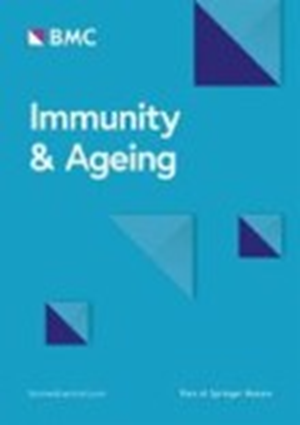Helicobacter pylori infection and Parkinson’s Disease: etiology, pathogenesis and levodopa bioavailability
IF 5.2
2区 医学
Q1 GERIATRICS & GERONTOLOGY
引用次数: 0
Abstract
Parkinson’s disease (PD), a neurodegenerative disorder with an unknown etiology, is primarily characterized by the degeneration of dopamine (DA) neurons. The prevalence of PD has experienced a significant surge in recent years. The unidentified etiology poses limitations to the development of effective therapeutic interventions for this condition. Helicobacter pylori (H. pylori) infection has affected approximately half of the global population. Mounting evidences suggest that H. pylori infection plays an important role in PD through various mechanisms. The autotoxin produced by H. pylori induces pro-inflammatory cytokines release, thereby facilitating the occurrence of central inflammation that leads to neuronal damage. Simultaneously, H. pylori disrupts the equilibrium of gastrointestinal microbiota with an overgrowth of bacteria in the small intestinal known as small intestinal bacterial overgrowth (SIBO). This dysbiosis of the gut flora influences the central nervous system (CNS) through microbiome-gut-brain axis. Moreover, SIBO hampers levodopa absorption and affects its therapeutic efficacy in the treatment of PD. Also, H. pylori promotes the production of defensins to regulate the permeability of the blood-brain barrier, facilitating the entry of harmful factors into the CNS. In addition, H. pylori has been found to induce gastroparesis, resulting in a prolonged transit time for levodopa to reach the small intestine. H. pylori may exploit levodopa to facilitate its own growth and proliferation, or it can inflict damage to the gastrointestinal mucosa, leading to gastrointestinal ulcers and impeding levodopa absorption. Here, this review focused on the role of H. pylori infection in PD from etiology, pathogenesis to levodopa bioavailability.幽门螺杆菌感染与帕金森病:病因、发病机制和左旋多巴生物利用度
帕金森病(PD)是一种病因不明的神经退行性疾病,主要特征是多巴胺(DA)神经元变性。近年来,帕金森病的发病率大幅上升。病因不明给开发有效的治疗干预措施带来了限制。幽门螺杆菌(H. pylori)感染影响了全球约一半的人口。越来越多的证据表明,幽门螺杆菌感染通过各种机制在腹泻中扮演着重要角色。幽门螺杆菌产生的自体毒素会诱导促炎细胞因子的释放,从而促进中枢炎症的发生,导致神经元损伤。与此同时,幽门螺杆菌会破坏胃肠道微生物群的平衡,导致小肠内细菌过度生长,即所谓的小肠细菌过度生长(SIBO)。这种肠道菌群失调会通过微生物组-肠道-大脑轴影响中枢神经系统(CNS)。此外,SIBO还会阻碍左旋多巴的吸收,影响其治疗帕金森病的疗效。幽门螺杆菌还能促进防御素的产生,从而调节血脑屏障的通透性,为有害因子进入中枢神经系统提供便利。此外,幽门螺杆菌还可诱发胃痉挛,导致左旋多巴到达小肠的转运时间延长。幽门螺杆菌可能利用左旋多巴促进自身生长和增殖,也可能对胃肠道粘膜造成损伤,导致胃肠道溃疡,阻碍左旋多巴的吸收。在此,本综述从病因、发病机制到左旋多巴的生物利用度等方面重点探讨了幽门螺杆菌感染在帕金森病中的作用。
本文章由计算机程序翻译,如有差异,请以英文原文为准。
求助全文
约1分钟内获得全文
求助全文
来源期刊

Immunity & Ageing
GERIATRICS & GERONTOLOGY-IMMUNOLOGY
CiteScore
10.20
自引率
3.80%
发文量
55
期刊介绍:
Immunity & Ageing is a specialist open access journal that was first published in 2004. The journal focuses on the impact of ageing on immune systems, the influence of aged immune systems on organismal well-being and longevity, age-associated diseases with immune etiology, and potential immune interventions to increase health span. All articles published in Immunity & Ageing are indexed in the following databases: Biological Abstracts, BIOSIS, CAS, Citebase, DOAJ, Embase, Google Scholar, Journal Citation Reports/Science Edition, OAIster, PubMed, PubMed Central, Science Citation Index Expanded, SCImago, Scopus, SOCOLAR, and Zetoc.
 求助内容:
求助内容: 应助结果提醒方式:
应助结果提醒方式:


